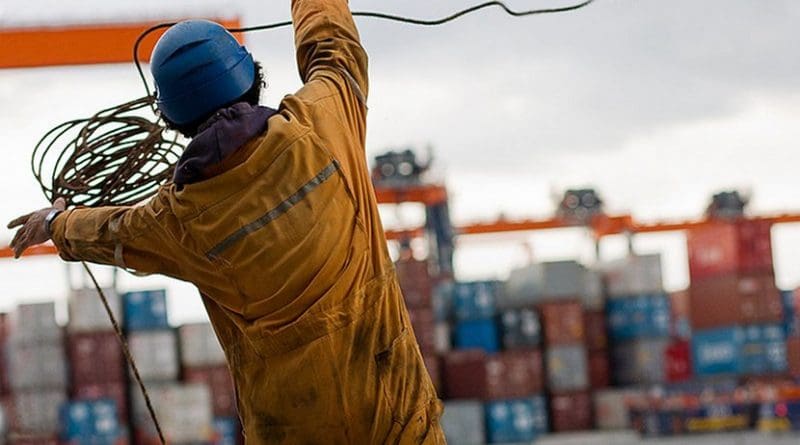Manila And Moscow Discuss Labor Agreement – OpEd
The Philippines and Russia get closer to signing an agreement that would protect Filipino workers in the Russian Federation. As the number of migrant Filipino workers increases, Moscow and Manila are busy negotiating a bilateral labour agreement that could allow thousands more overseas workers into various sectors of the Russian economy.
On May 15, formal discussions were held by Foreign Minister Sergey Lavrov with Philippines’ Secretary of Foreign Affairs Alan Peter Cayetano in Moscow.
Sergey Lavrov noted: “We are interested in ensuring that Filipino workers, who work in the Russian Federation, are socially protected. Many of them were here through private companies, often without the necessary licenses.”
“All this does not provide social protection for Filipino citizens working in the Russian Federation. With the conclusion of the agreement, the beginning of preparation of which we have agreed today, we will solve these issues. We have such agreements with a number of other countries, including ASEAN member States,” he promisingly added.
Earlier, a Regional Migration Specialist at the International Labour Organisation (ILO)’s Regional Office for Asia-Pacific in Bangkok (Thailand), explained in an interview with me that a comprehensive labour agreement between Russia and the Philippines could be positive, if it established procedures and standards for the recruitment, employment and subsequent return of migrant workers.
According to the Philippines Overseas Employment Administration (POEA), Russia officially registered nearly 15, 000. Consequently, such an agreement (could) guarantee the labour rights of migrant workers and eliminate or limit recruitment costs. It will further provide Filipino workers with access to emerging labour market there.
The Federal Migration Service (FMS) office in Moscow has also explained that “official” Filipino workers are entering the country on tourist or business visas, assisted by middlemen and local licensed agencies that often act as migrants’ direct employers and channel them straight into labour market.
The Philippine government has been negotiating for better regulations and working conditions for its citizens for the past several years with little or no conclusive results.
In March 2012, for instance, the then Philippine Secretary of Foreign Affairs, Albert Del Rosario held an official discussion in Moscow with Minister Sergey Lavrov on the possibility of sealing a bilateral labour agreement.
Besides, a string of events and conferences over the years have highlighted renewed interests in developing the market of overseas Filipino workers, who are believed to be one of many solutions to Russia’s human resource needs.
Many experts believe that economic modernisation in Russia depends heavily on skilled foreign labour, limited to certain specific sectors like domestic work, finance, and construction.
The fact that Russia willingly entered into the negotiations implies not only that it has an urgent need for the services of foreign workers but also that it is fully aware of the benefits of such an agreement.
Experts have pointed to the Philippine government’s success in deploying its workforce abroad, in many foreign countries. About 10 percent of The Philippines’ population of 90 million people works abroad, with regular remittances accounting for up to 25 percent of the country’s gross domestic product (GDP).
Some estimates put the total contribution to the Philippine economy by specialists working abroad at $50 billion last year.
The Philippine Overseas Labour Office in Rome (Italy), explained to me that the Philippine government has an official policy of deploying Filipino workers only to countries that guarantee protection and promotion of their rights, welfare and interests.
Under a recently enacted law, the Philippine government banned its nationals from seeking employment in countries that do not guarantee the rights and welfare of foreign workers, or whose local labour and social legislation does not cover migrant workers.
Quite recent, the Philippines government and the Kuwaiti government signed an agreement on the recruitment, use and protection of Filipino workers after a diplomatic row over abuse and inhuman treatment of working Filipinos.
It therefore implies that The Philippines and Russian authorities have to work on effective ways to establish and improve the bilateral legal framework for mutual benefit for both countries. *This special report from Kester Kenn Klomegah, an independent researcher and policy consultant, in Moscow.

